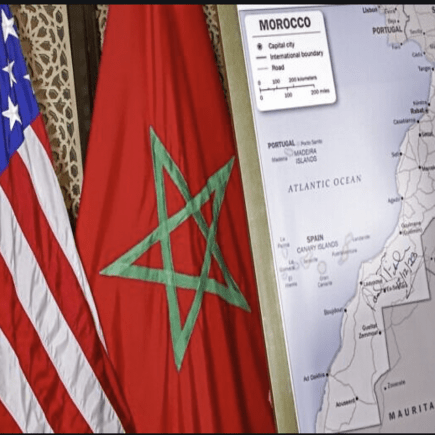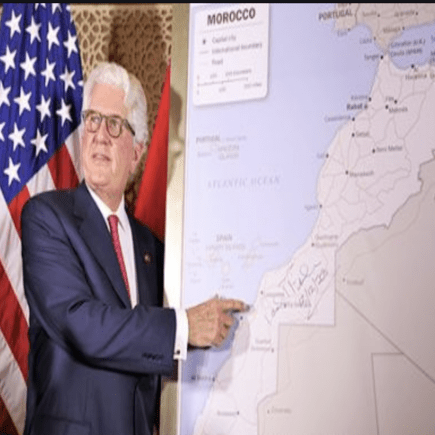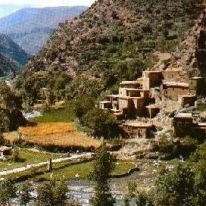
The US government has adopted a “new official” map of Morocco including the southern provinces, American Ambassador David Fischer said on Saturday. In the past, the US government used a map of Morocco with the southern provinces cut off from the rest of the country.
Fischer said he plans to gift the map to King Mohammed VI in acknowledgment of “his bold leadership, and for his continuous and invaluable support for the deep friendship between our nations.”
The ambassador, who signed the map in a ceremony, said the map is a tangible representation of President Trump’s important proclamation on Thursday, December 10th, 2020 of the US recognizing “Moroccan sovereignty over the entire Western Sahara territory” and reaffirming its support for a Moroccan proposal to grant limited autonomy to Sahrawis under overarching Moroccan control.
“The United States believes that an independent Sahrawi State is not a realistic option for resolving the conflict and that genuine autonomy under Moroccan sovereignty is the only feasible solution,” the proclamation states.
“We urge the parties to engage in discussions without delay, using Morocco’s autonomy plan as the only framework to negotiate a mutually acceptable solution,” it said. The US previously recognized that plan as “serious, realistic and credible” – a position it repeated in its proclamation.
“This is something that’s been talked about for a long time but something that seemed inevitable at this point and something that we think advances the region and helps bring more clarity to where things are going,” senior White House adviser Jared Kushner told reporters.

In a news conference Friday, Moroccan Foreign Minister Nasser Bourita hailed US recognition of Western Sahara’s “Moroccan identity” as a “historic diplomatic breakthrough.” “Several years of work” had been “crowned with the recognition of the United States, the major power on the (UN) Security Council,” he said in an interview.
Western Sahara has been on the United Nations’ list of non-self-governing territories, a stance also taken by the African Union, the International Court of Justice (ICJ), and the European Union. The region is home to some 500,000 people, most of whom live in the capital, Laayoune.
Trump announced that he signed the proclamation to support Morocco’s cause. The president added that the US is planning to open a consulate general in the southern Moroccan city of Dakhla, and the region has already started welcoming new US investment projects.
The decision received varying feedback from the international community. Many countries supported the US decision, including the UAE, Oman, and Bahrain. Other countries supporting Morocco’s territorial integrity also expressed support for the US move, including Eswatini, Gabon, and Zambia.
Morocco bonding with Israel was an unexpected move, however, for Algeria, who denounced the US decision, deeming it as a violation of international law. The Polisario dismissed the announcement and vowed to fight on until Moroccan forces withdraw from all of Western Sahara.
Prime Minister Abdelaziz Djerad, Morocco’s neighbor and regional rival, and the key foreign backer of the Polisario Front on Saturday criticized “foreign manoeuvres” that he said aimed to “destabilize Algeria”.
“There is now a desire by the Zionist entity to come closer to our borders,” Prime Minister Abdelaziz Djerad said, in reference to Israel. Algeria also used its national press agency to publish reactions from the Polisario Front to the US decision.
In addition to US support for Morocco’s territorial integrity, Trump also announced that Morocco and Israel agreed to establish diplomatic relations.
King Mohammed VI confirmed the US announcement in a royal cabinet press release. He gladly welcomed Trump’s decision to recognize Moroccan sovereignty in Western Sahara and assured that Morocco’s support for the Palestinian remains unchanged.





